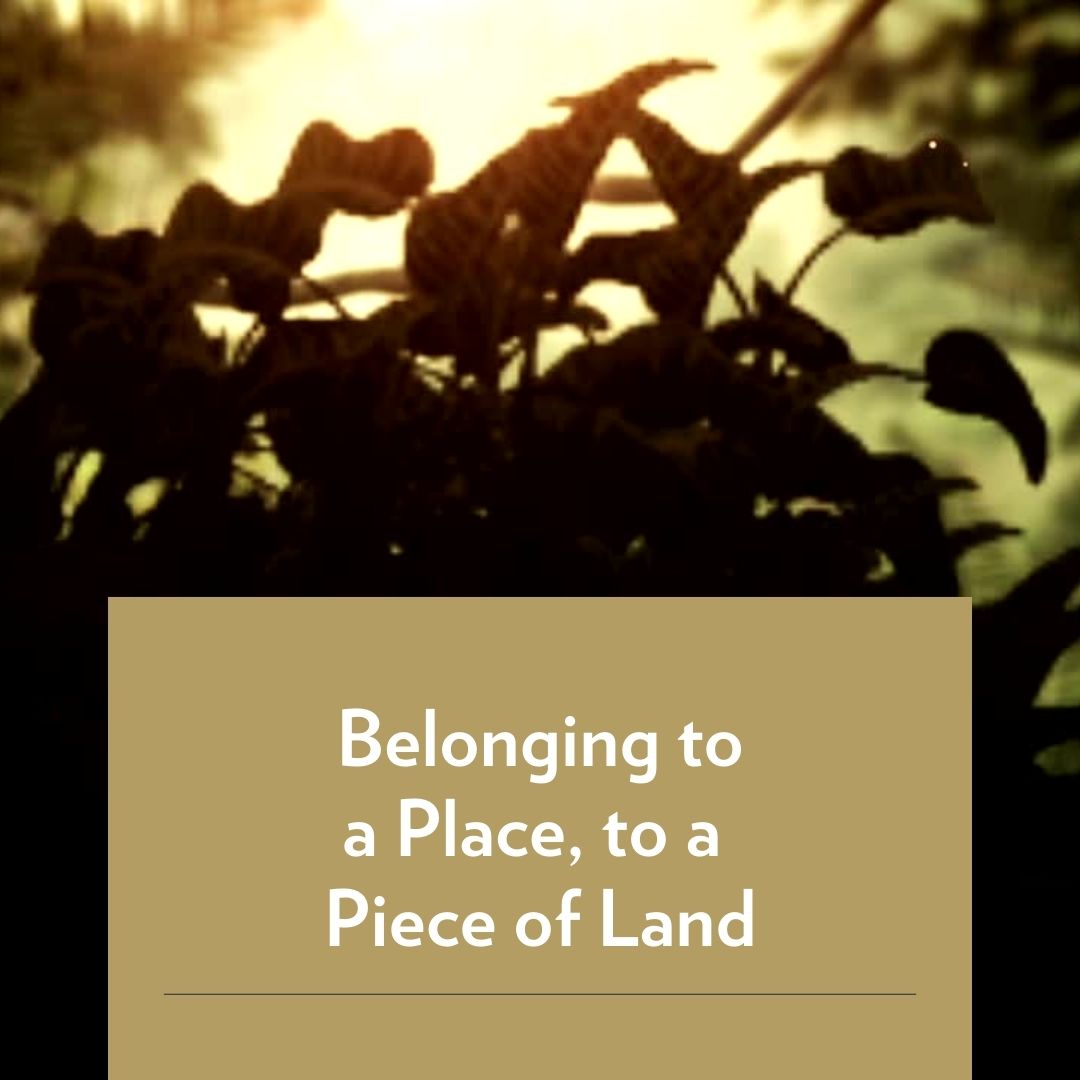Becoming Indigenous: Embracing Our Connection to the Land
When we arrive on a new piece of land, we seek shelter, work, food, medical care. Ideally, we arrive with an attitude of curiosity and respect for what is already there, for the people who live there, their customs and culture. We learn its history. We get to know our human neighbors.
But what would it take to go further than that, to become indigenous? I say this not in the capital “I”, or political sense of the word*, but in the literal sense of it- which is “sprung from the land”, “belonging to the land”, as if “birthed from it”, as if “not brought from somewhere else”. What if we decided to enter into an intimate relationship with each physical place we live or visit?
I know people who have lived on the same piece of land for years, and yet have no connection with the specific trees in their yard. They don't know the names the plants have been given, the plants’ allies or antagonists, what the plants’ medicines are, or even the times that they bloom, much less their sounds and vibration. Conversely, I also know people who've just arrived at a place that can already name the watershed, the nearest river and their home mountain. They can, without hesitation, point to where the sun rises and sets. They make it a practice to kneel and kiss the ground, to hug the trees,to attune to where they are geospatially. To feel the vibration of this specific place.
Belonging to the land is an orientation, a point of view. It doesn't matter how recently you've arrived, it matters how intimately you've dropped in. Being of a place is the birthright of anyone who decides, who commits. I believe that without this belonging to the land, this love of place, this choosing to love a place, we will collectively fail at caring for our wondrous shared earth.
No matter how removed you are from your last indigenous ancestor, all people on earth once lived this way. We all have connection to the earth and land-based societies in our DNA. When I see the mass appropriation of indigenous symbols and traditions (which is of course problematic when done without consciousness, deep understanding, or acknowledgment of lineage), I interpret that as a pointer to the internal longing in all people to reconnect to their own birthright to be part of an ecosystem.
If you’re of European descent, you may be tuning into the re-awakening to the cosmology of northern Europe in the time before Greco-Roman and Christian occupation and colonization. A thousand years ago, the land-based clans and peoples that you come from ( eg, the Anglo-Saxons, Arians, Asatru, Carolingians, Celts, German, Goths, Franks, Lombardis, Norse) all held worldviews which emphasized harmonious relationships with the natural world and the divine unseen. They all had deep practices acknowledging the elements, the seasons, the planets, the animals. They all acknowledged “ancestors”- and this is not the literal maternal and paternal lineage, but all of creation that came before you, that led to who you are. This, to me, echoes much of what I have seen in studying eastern and land based traditions.
You can go back in time and check in, meditating on questions such as, “what did my ancestors know about connecting to earth" or "what is in my own genetic and epigenetic inheritance”.
You will find echoing in your bones the same knowledge that indigenous people all over the world share: you too remember how to venerate fire and dance to a drum and dance with your family and collaborate to make and break camp, how to make love and have babies, and adorn the body, and sing and hunt together. That there is more to what is real than the manifest material forms of the 5 senses. Possibly event that time is cyclical, not linear. You might find a forgiveness for the separation, for the intervening generations who succumbed to the trance of world denial.
From an eco-spiritual perspective, I would like a new term that allows all people to belong to the local land. Not citizen, which is belonging to the government. Not resident or inhabitant, which is separate somehow. A term that encourages even newcomers to claim the connection in a respectful and healthy way- perhaps even makes the establishment of connection to land a joyful expectation.
At this time in humanity, let us all become once again small “i” indigenous, in its deepest meaning. Let us return to our existential belonging to the land we inhabit, our belonging to earth, our recognition that we live as part of her and at her mercy.
To the loving and interconnected reality: body, soul, soil, cosmos. And to our vast web of kin.
*Using the word Indigenous to refer to the original or first peoples of a particular place is important from a political and cultural justice viewpoint: naming the domination, violence and extermination done in the name of "discovery". The title of “Indigenous”, with a capital “I” carries with it the acknowledgment of the epic violence that still echoes in Indigenous lives now. A few weeks ago, I heard activist Erin Matariki Carr say that it is “strategic amnesia to forget these things.” So we keep working on remediation for that, we help where we can, acknowledging that it is still impacting us. It was only a few weeks ago (let's say… four centuries too late?) the Catholic Church formally repudiated the enabling/justifying idea, the Doctrine of Discovery, saying, "Never again can the Christian community allow itself to be infected by the idea that one culture is superior to others, or that it is legitimate to employ ways of coercing others."






















